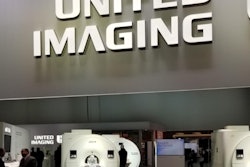Dear AuntMinnieEurope Member,
Much publicity and hype have surrounded ChatGPT since the launch of the artificial intelligence language tool in late 2022, but its practical limitations are now becoming clear.
A U.K. team has evaluated five radiology articles and raised serious concerns about ChatGPT in terms of its role in scientific research and publication. On the plus side, we've posted a second article this week from Germany about the technology's potential for developing a clinical knowledge system that could provide decision support.
Radiologist Dr. Paul McCoubrie has written columns for us for more than a decade now and will be well known to many of you, but did you realize he cycles to work and relies on decent coffee and black pudding and mushrooms to function properly in the morning? In his latest offering, he elaborated on a typical day in his life and how to be a good colleague.
Injuries from seat-belt trauma are prone to misdiagnosis on initial CT scans, say radiologists from Madrid's Hospital Universitario 12 de Octubre. They reviewed images of traffic accidents with clinical evidence of seat-belt injuries from a database of 81 patients built up since 2010. They've shared their findings and kindly given us permission to publish four cases.
In another Spanish study, a team from Valencia scrutinized radiation dose levels for patients who were treated at three interventional radiology rooms or investigated on two CT systems and a pediatric diagnostic fluoroscopy unit. Their results deserve a close look in the CT Community.
Cinematic rendering uses information derived from CT and conebeam CT images, and it serves as an alternative approach for visualizing volumetric medical imaging data. German investigators have written about the applications of cinematic rendering for the volumetric image visualization of midface CT datasets.



















